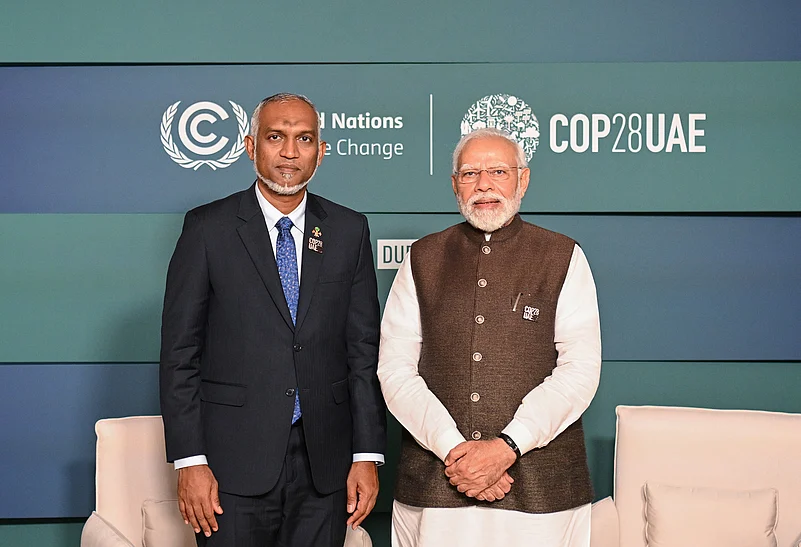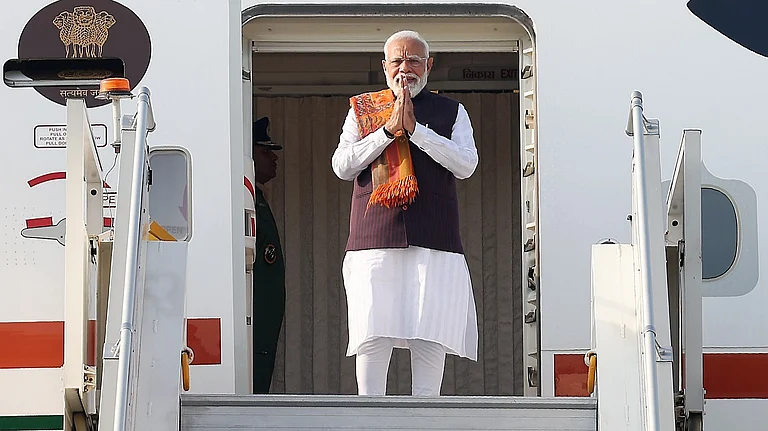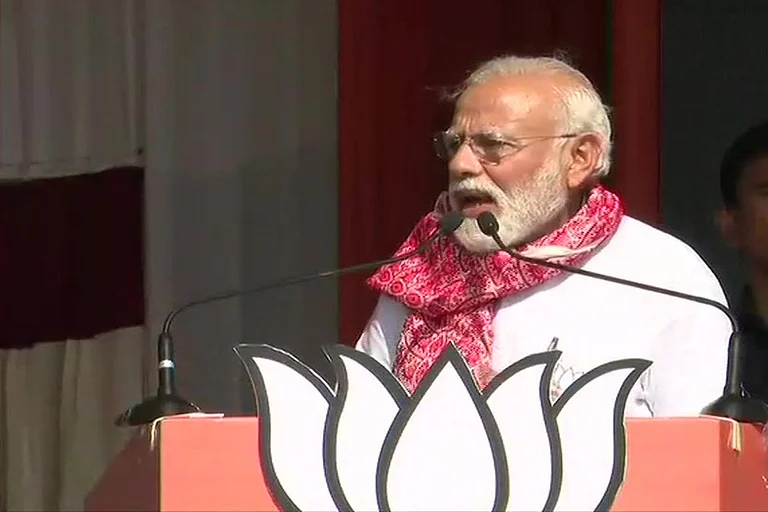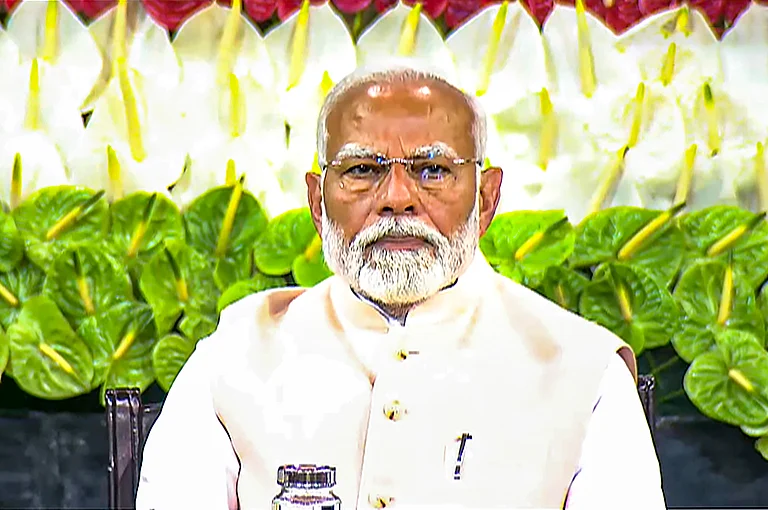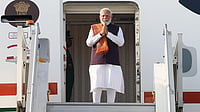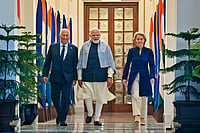As Narendra Modi begins his third term as Prime Minister, a number of foreign leaders will attend his swearing-in at Rashtrapati Bhavan on Sunday. Those invited are from India’s neighbourhood and the island nations of Indian Ocean region. These have assumed growing importance since 2015, when India announced its "Sagar" vision – a maritime and security co- operation policy initiated by the Narendra Modi.
Bangladesh’s Prime Minister Sheikh Hasina and the Vice President of Seychelles Ahmed Afif are already here. Among those coming in on Sunday are Sri Lanka’s President Ranil Wickremesinghe, Bhutan’s Prime Minister Tshering Tobgay, Mauritius Prime Minister Pravind Kumar Jugnauth, Maldivian President Mohamed Muizzu, and Nepal’s Prime Minister Pushpa Kamal Dahal or Prachanda as he is commonly called.
Among all the leaders who will be in attendance, the most significant at the moment is President Muizzu because of the testy relations between Male and New Delhi. As is well known the two Asian powers – India and China are both hoping to bring Maldives into their sphere of influence. The Maldivian Democratic Party headed by former president Ibrahim Mohamed Solih, was seen as pro-India, while his successor Muizzu’s People's National Congress (PNC) slants towards China. Beijing’s influence in the island nation, a stone’s throw from India has grown by leaps and bounds since he took over the presidency. By coming for Modi’s swearing -in Muizza has indicated that he is now ready to reset ties with India and normalise ties with one of his country’s closest neighbours.
This does not mean that China will be abandoned. As Muizzu has said time and again, he is neither pro India, nor pro- China but pro Maldives. The underlying message is simple. He will do what is best for his country, and try to get the maximum advantage from both the Asian rivals. Every nation looks to get the best deal for itself and Maldives is no exception.
Having come to office riding an anti-India wave, Muizzu announced on the first day of taking office that he would abide by his election promise and ask the Indian military to withdraw.
According to the Maldivian officials, India has roughly 77 military personnel in the island. There are 24 Indian military personnel to manage the first helicopter, 25 Indians to manage the Dornier aircraft, 26 personnel to manage the second helicopter, and two more for maintenance and engineering, according to the officials. But many of these are civilians working on maintenance of the equipment.
Anti-India forces in the island see the posting of Indian personnel as the first step in New Delhi’s desire to have a military base not just a presence in the Maldives. India placed the helicopters and the aircraft to train local pilots and maintenance crew and help in disaster management and security.
Ironically the proposal was first made by former President Yameen who became pro-China in the course of his presidency. The discussions began when he visited India in 2016. "As per the Govt-to-Govt Agreement & discussions started in 2016, the Dornier arrives! It will engage in humanitarian relief efforts & joint-EEZ surveillance under command & control of #MNDF; It proudly dons #MNDF colours & crest and will involve Maldivian pilots in its operations," the Indian High Commission in Male tweeted in 2020.
India has withdrawn all military personnel from the island-nation, and replaced then by a civilian team. Muizzu plays his cards. An anti-India rhetoric may have won him the elections, but once in government Muizzu would have quickly realised that the country needs the support of both India and China for its development.







